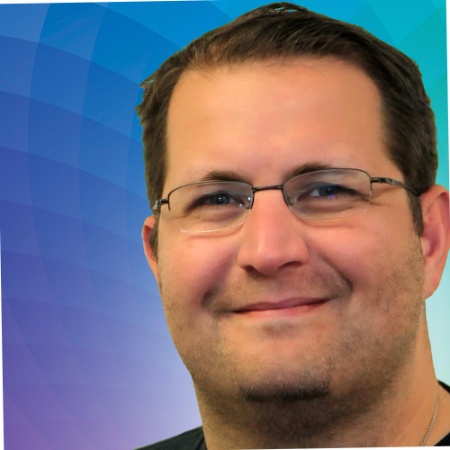
It’s not every day I get to interview an early Internet power player like this guy.
Dan Wesley founded CreditLoan.com in 2003 and then exited this startup 8 years later with an 8 figure payout. He’s also been a contributor for top publications like Forbes, Mashable, Huffington Post, and Inc.—among other impressive accomplishments.
Confident that Mr. Wesley is rich in knowledge and you guys would take away some solid insights from him, I asked him for an interview and he happily said yes.
The main topics covered below are financial ones like student loans, credit cards, personal loans—you know, that important stuff that ultimately decides how much money you end up with, which controls how free you are to do what you love. And then the interview finishes off with Dan sharing some of his best life lessons.
Getting your money right is a big deal and Dan is going to help us.
Let’s just dive into this goodness so you don’t have to wait any longer.
1. What led you to start CreditLoan.com and help millions of people financially in the process?
Humble beginnings – I grew up well below the poverty line with the deck stacked against me, like millions from all walks of life, face today. So, I decided to do something about it long before the Nerdwallet’s of the world.
As you can imagine in 1998, Google is, what, 3 years old? Yahoo, Lycos, Netscape are the main events. It took me awhile to get going (2003 is when I really started to publish consistently). It’s been a fairy tale of sorts, as I ended up completely bootstrapping this from a $5,000 tax return to an 8 figure exit.
I still run the business today, the only regret is I only started to scale things (with venture capital) just a year ago.
I could have been Nerdwallet… but I’ll take it!
2. Where do many college students go wrong with student loans and what should they do instead?
That’s a really great question. I’m 40 and while I don’t have college bound children yet, I took student loans to survive. I was the first to graduate in my family with a college degree. So my parents had just as much understanding as I did of student loans plus long term implications. This is a fancy way of saying basically no party had ANY idea what I was getting myself into lol!
But if I had a child college bound today, they would definitely be a beneficiary from my student loan experience. So is it survival? Generational knowledge gap equaling naivety across the board (parent <=>)? The lack of obvious life experience for most college students? You only learn from making mistakes right? Is that inevitable? I don’t know.
Personally, I know I should’ve just stuck to subsidized loans but I ended up taking on unsubsidized as well (I don’t believe these exist anymore and rightfully so). The student loan alternatives: are grants (is Matthew Lesko still around? ha!), employer tuition assistance, military GI bill, and scholarships.
3. Since 1998, when you started helping consumers on financial issues, until now in 2017, what’s changed most about personal finance in your opinion?
Great question! First off, the amount of personal finance information on the web, hands down. They call it “content shock”. Digital information overload plus ubiquity of mobile with always being “connected” (love this graphic…worth a 1,000 words I tell ya).
I read a few years back (2012 I believe), over 2 million pieces of content are published everyday. I can’t imagine how that has grown exponential today. Moreover, I think there’s a form of censorship in play (unintentional in my opinion, explained below).
As the top finance Google results are dominated by brands (nerdwallet, bankrate, thesimpledollar, thebalance) it’s tough for small businesses with better end user value propositions to overcome these behemoths. But I don’t think Google is doing this on purpose—naturally you have so many bad players that Google (as the police officer) ends rewarding the brands that are trusted the most.
If they are trusted the most, you can assume they’re content is commensurate (plays right into Google’s “yo money, yo life” search ranking guidelines).
At the end of the day, the consumer votes with engagement metrics and all Google does is aggregate that against the population of finance sites—it’s that simple in my opinion.
We always pander to the user, not the search engine.
4. Do you recommend 20+ year olds get a credit card? Why or why not?
Can we really stop them? Paraphrasing a great quote, “The only substitute for life experience is being 20”, right?
I’m 50/50 on this. It’s situational – some 20 year olds act like their 40 and others act like they are 10. The key here in my opinion, is limit yourself to just 1 major credit card. You want that credit card as an outlet, safety valve (discretionary or not, things happen and we are human after at all).
In my opinion, no credit card equals no life experience, more risk, potentially more costly to a 20 year olds’ cashflow. (Example: overdraft fee or a late electric bill payment sometimes exceed the interest only payment of that respective credit card.)
In my opinion, a credit card equals life experience if used responsibly; you want that credit card as an outlet, safety valve (discretionary or not…things happen and we are human after at all). Bad credit, as we know, has a nasty butterfly effect when you are trying to finance a car, get an apartment, it unnecessarily complicates your life (I’ve been there begging my parents to co-sign).
5. How many credit cards do you personally have? What ones? And what’s the purpose behind each one?
I have an Amex Black, Discover, Visa Black. Primary use is, honestly, an additional layer of security (would rather have my credit card compromised vs my bank card).
The Amex Black is awesome for making a point though. I don’t play the I’m-a-multimillionaire-card (you can ask anyone). I’m a pretty laid back, humble guy, but I can totally upend any perceived judgement, underestimation fairly quickly ;).
6. I’m sure there’s a wealth of information you could go on and on about when it comes to this. But what’s your best single piece of advice for a young adult who needs a personal loan?
My single best advice involves one sheet of paper and two columns: pros on the left, cons on the right. Then you can truly figure out if it’s a need or a want.
Use cause and effect exercise so you can identify the drivers of obtaining a personal loan.
Secondary to that, if you embark on the personal loan quest, be sure to shop around. Get at least 3 quotes: 2 digital (like our site or lending club) and 1 brick n mortar (your local bank).
7. Say I’m 27 years old needing a mortgage for my first home. What’s a key point I need to know to come out with the best interest rate possible?
Due diligence, as you know, many governors in play here. Your credit score and income are two items that single-handedly dictate everything.
Assuming those items are in line, I would advocate for comparative shopping (get 3 quotes).
With so many businesses out there, like Nationwide at times, competing for your business, fully maximize that leverage and use points to buy down the rate.
8. Is there one final knowledge bomb you want to drop on us?
Take things one day at time, can’t stress this enough. If one day at a time is too overwhelming, slow it down even further. One hour at a time, whatever it takes to catch your breath.
It’s so important. I always remind my 8-year-old son (he plays baseball) when his team is losing:
“How many runs can you score at once?”
He replies: “1 dad…”
I reply: “Then work on 1, son, then 2, then 3”, one at a time.
This puts the most important things into perspective, so you bite off what you can chew and this usually leads to a much better outcome in my experience.
Also, here are a few “Danisms”: “refuse to be a statistic”, “never be denied”, and “move like you got a purpose in life”.
9. Where can we go to learn more about what you do and you?
Here’s my LinkedIn profile. I will be launching my personal website by EOY.
Like I mentioned before, I do write for Entrepreneur and my work has been featured in over 150 articles across 61 publications including Time Magazine, WSJ and Business Insider.
CreditLoan.com has also been featured in over 48 books and in 2011, I helped Guy Kawasaki launch his new book (view here).
Final Words
There’s a ton of important information shared in this interview.
But, if you’re a regular reader of Take Your Success, you should know by now that life isn’t about absorbing knowledge and calling it a day. You need to take what Dan Wesley said and put it to action if you desire to see positive results.
I want you to win. Do you want yourself to?
Related: The Best Time To Start Is Now


